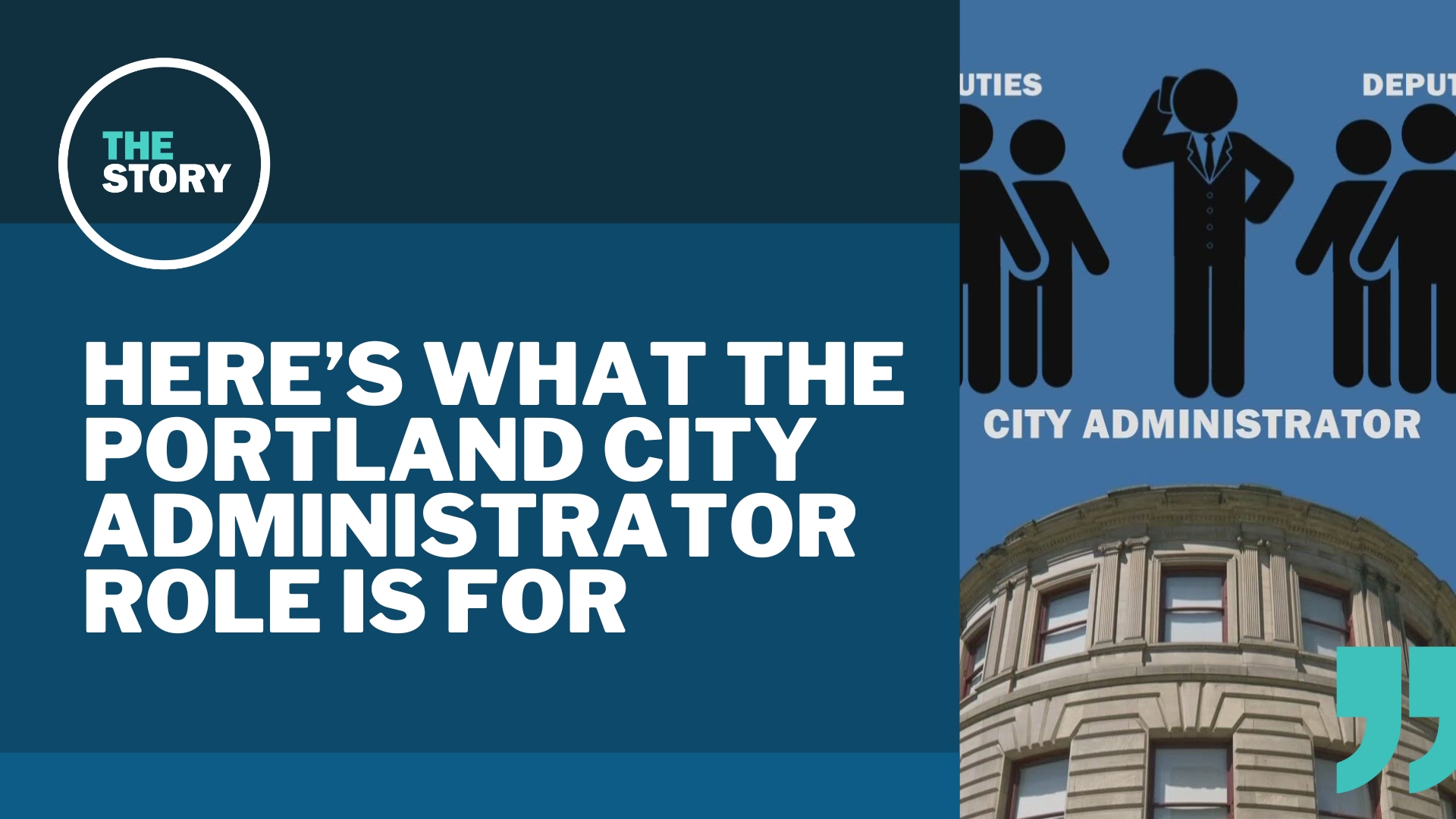PORTLAND, Ore. — On Wednesday, The Story covered what the mayor will and won't be able to do after the November election. Arguably more important is the next person in the hierarchy of Portland's new form of government: the city administrator.
That person will run the day-to-day operations of the city rather than commissioners, which is what we've been used to. But the administrator will not be doing it alone; they'll have deputies overseeing "groups" of bureaus.
Here's how that will work: Under the new system of government, the city administrator will be large and in charge. They will be appointed for an indefinite term by the mayor, and they must be confirmed by a vote of the city council.
The mayor can also fire the administrator. The city council can also fire the administrator if a super-majority — nine of the 12 councilmembers — votes to toss the administrator out.
So, that might be an interesting political balancing act if the mayor wants the administrator to do something and the council wants otherwise.
But overall, the city administrator, with their team of deputies, will pull the levers that make Portland's city government work, executing the policy plans to reach goals that the mayor and council want for the city.
Shoshana Oppenheim, the project manager in charge of the city’s massive transition to this new form of government, explained:
"The city administrator has chartered responsibilities. So outlined in the charter are the role of the city administrator to manage the day-to-day operations to support the mayor in their executive duties ... the city administrator has to look both to city council and their policy priorities to community constituents, as well as to the mayor, to make sure they are working and advancing the mayor's priorities."
Oppenheim added, "It's a very challenging job."
That might be an understatement. The city administrator is the boss to most of the people working in the city. They will be in charge of the assistant city administrator, who will oversee communications, community and civic life, council operations, the office of government relations and Portland Solutions, the homelessness and livability office.
The city administrator will also be in charge of Portland’s equity officer — and through them, the Office of Equity and Human Rights. On top of that, the city administrator will also be in charge of six deputy city administrators who will oversee a total of 33 city offices and bureaus employing thousands of city workers.
Portland's new charter — basically the rules of how the government works — gives the administrator the power to hire and fire bureau directors and nearly any employee in the city. They will also control and administer the financial affairs of the city, including preparing an annual budget with the help of the budget director.
Mike Jordan is Portland’s interim city administrator. Mayor Ted Wheeler has turned over nearly all the city bureaus to Jordan and his team of deputy city administrators as they work to transition over to the new form of government.
Jordan has said he will not be Portland’s permanent city administrator, but he would not mind staying on for a year to help the new administrator, whomever that might be.

